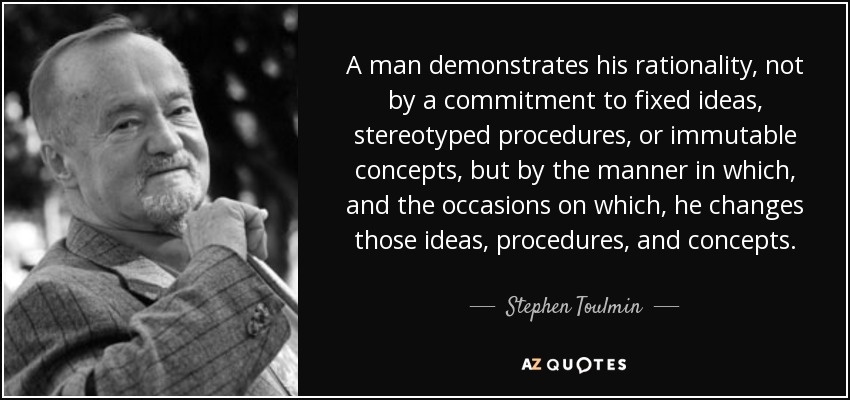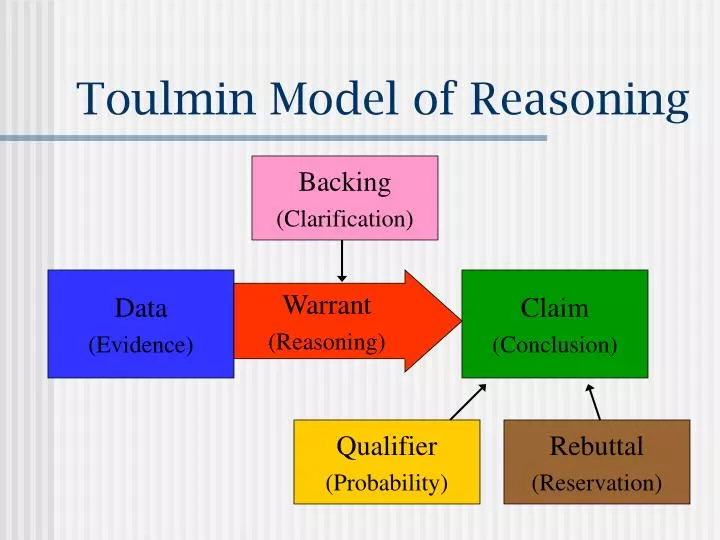Skip to comments.
The Statement of Chemistry on the Origin of Life
American Thinker.com ^
| September 26, 2017
| James Clinton
Posted on 11/26/2017 6:49:57 AM PST by Kaslin
In his August 1954, Scientific American article, "The Origin of Life," Nobel Prize winning Harvard Biologist George Wald stated,
"One only has to contemplate the magnitude of this task to concede that the spontaneous generation of a living organism is impossible. Yet here we are as a result, I believe, of spontaneous generation."
What is "the magnitude of this task" that reasonably renders a natural origin of life "impossible?" Dr. Wald states,
"In the vast majority of processes in which we are interested the point of equilibrium lies far over toward the side of dissolution. That is to say, spontaneous dissolution is much more probable, and hence proceeds much more rapidly, than spontaneous synthesis."
The processes of interest include building proteins, DNA, RNA, and lipids. Nature does not engage in the "processes" of building these life-essential molecules (synthesis); Nature, rather, dismantles them (dissolution), if they exist at all.
Why? Nature inexorably proceeds towards "equilibrium" (Chemical Equilibrium), the most stable state. For example, the most stable state for amino acids in Nature is individual amino acids, not proteins.
(Excerpt) Read more at americanthinker.com ...
TOPICS: Culture/Society; Editorial
KEYWORDS: chemistry; creation; origins; science
Navigation: use the links below to view more comments.
first previous 1-20 ... 121-140, 141-160, 161-180, 181-184 next last
To: BroJoeK
So why not just make your case -- show me how there's really no difference -- instead of blasting away with stupid insults? Well if you would just read the book....
161
posted on
12/04/2017 9:43:54 AM PST
by
papertyger
(Bulverism: it's not just for liberals anymore.)
To: papertyger
papertyger:
"Well if you would just read the book...." Your book?
162
posted on
12/06/2017 7:07:36 AM PST
by
BroJoeK
(a little historical perspective...)
To: BroJoeK
No. Kuhn died in 1996.
I just enjoyed giving you and your “discovery channel” scholarship a taste of your own medicine.
As I said, I’m done with you.
163
posted on
12/06/2017 11:19:23 AM PST
by
papertyger
(Bulverism: it's not just for liberals anymore.)
To: papertyger
paptetyger:
"I just enjoyed giving you and your 'discovery channel' scholarship a taste of your own medicine.
As I said, I’m done with you." So, all that anger, but still no thread-related facts or reasons?
164
posted on
12/06/2017 11:39:51 AM PST
by
BroJoeK
(a little historical perspective...)
To: BroJoeK
If my recommendation of a book does not count as “facts or reasons,” then why do yours?
165
posted on
12/06/2017 11:46:20 AM PST
by
papertyger
(Bulverism: it's not just for liberals anymore.)
To: papertyger
papertyger:
"You like to read?
Fine, I’ve got one for you.
Try “The Structure of Scientific Revolutions” by Thomas Khun.
It has been THE standard for over fifty years dealing specifically with the history and progress of science. "Thomas Kuhn, "The Structure of Scientific Revolutions"
$10.22 for Kindle edition...


![]()
"The Structure of Scientific Revolutions (1962; second edition 1970; third edition 1996; fourth edition 2012) is a book about the history of science by the philosopher Thomas S. Kuhn.
Its publication was a landmark event in the history, philosophy, and sociology of scientific knowledge.
Kuhn challenged the then prevailing view of progress in 'normal science'.
Normal scientific progress was viewed as 'development-by-accumulation' of accepted facts and theories.
Kuhn argued for an episodic model in which periods of such conceptual continuity in normal science were interrupted by periods of revolutionary science.
The discovery of 'anomalies' during revolutions in science leads to new paradigms.
New paradigms then ask new questions of old data, move beyond the mere 'puzzle-solving' of the previous paradigm, change the rules of the game and the 'map' directing new research"
I am familiar with Kuhn's ideas to the point of taking them for granted, without thinking deeply of their origins.
Indeed, what Kuhn is talking about in 1962 regarding science might well be said of Stephen J. Gould's 1972 ideas on evolution's punctuated equilibrium.
And I'd note criticisms of both ideas include that the "equilibrium" phase is often more dynamic than usually supposed.
And you think Kuhn is important here for what reason?
166
posted on
12/07/2017 7:58:45 AM PST
by
BroJoeK
(a little historical perspective...)
To: BroJoeK
And you think Kuhn is important here for what reason? Because of the tendency to try preserving failed paradigms, giving rise to the use of nebulously applied concepts like “dynamic equilibrium.”
167
posted on
12/07/2017 8:11:30 AM PST
by
papertyger
(Bulverism: it's not just for liberals anymore.)
To: papertyger
papertyger:
"...nebulously applied concepts like 'dynamic equilibrium.' " "Dynamic equilibrium" would be your term, not mine.
I merely tried to note that "equilibrium" can be a relative term, meaning a period of less apparent changes.
But "less" does not necessarily mean "zero", and can indeed include significant unnoticed modifications "below the surface".
And this is an issue for you, why?
168
posted on
12/07/2017 8:35:38 AM PST
by
BroJoeK
(a little historical perspective...)
To: BroJoeK
...and can indeed include significant unnoticed modifications "below the surface... Such as....?
169
posted on
12/07/2017 9:00:05 AM PST
by
papertyger
(Bulverism: it's not just for liberals anymore.)
To: papertyger
papertyger:
"Such as....?" Well... if we're talking about Gould's "punctuated equilibrium" in evolution then we're dealing with fossilized bones which cannot tell us much about developments in, for example, internal organs.
So fossilized bones might appear more-or-less the same over some period of time, while internal organs adjusted to a new condition.
Kuhn's more general ideas could suffer the same way: yes, on the surface it could appear a certain scientific idea was unchanged over a long period, but more careful study reveals much agitation "under the radar":
"In his 1972 work, Human Understanding, Stephen Toulmin argued that a more realistic picture of science than that presented in The Structure of Scientific Revolutions would admit the fact that revisions in science take place much more frequently, and are much less dramatic than can be explained by the model of revolution/normal science.
In Toulmin's view, such revisions occur quite often during periods of what Kuhn would call "normal science."
For Kuhn to explain such revisions in terms of the non-paradigmatic puzzle solutions of normal science, he would need to delineate what is perhaps an implausibly sharp distinction between paradigmatic and non-paradigmatic science."
Kuhn:

Toumlin:


![]() >
>
170
posted on
12/07/2017 9:57:07 AM PST
by
BroJoeK
(a little historical perspective...)
To: BroJoeK
How about a “such as” that isn’t untestable speculation?
171
posted on
12/07/2017 10:05:03 AM PST
by
papertyger
(Bulverism: it's not just for liberals anymore.)
To: BroJoeK
Quick question: how does Toulmin’s assertion differ from Kuhn’s “modify paradigm” under the “Anomaly” step?
172
posted on
12/07/2017 10:14:47 AM PST
by
papertyger
(Bulverism: it's not just for liberals anymore.)
To: papertyger
papertyger:
"How about a “such as” that isn’t untestable speculation?" First, you might want to take it straight from the horse's mouth:
Stephen Toulmin, "Human Understanding: The Collective Use and Evolution of Concepts".
Second, "untestable speculation" would be your response to pretty much anything evolution related, right?
So if I were to cite similar fossils but ages thought to be millions of years apart, you'd reject that out of hand as being "untestable speculation", wouldn't you?
But suppose we consider elephants: African, Indian & extinct Columbian Mammoths.
All similar in appearance, at 11 tons the Columbian Mammoth was the largest, the African elephant next at 10 tons and Indian elephants smaller at 6 tons.
So, given their many similarities, how do we tell if they're all the same species or kind?
Well, it turns out with African & Indian elephants we know for certain they're not, but are classified as separate genera in the family Elephantidae.
So what about huge Mammoths, were they more closely related to the bigger African or smaller Indian elephants?
Here it turns out, despite similar appearances, Mammoth DNA was found less related to African than Indian elephants -- a current example in biology where changes "below the surface" are greater than those readily apparent.
What's "testable" here?
DNA comparisons quantify what otherwise are only morphological judgments.
173
posted on
12/07/2017 12:39:23 PM PST
by
BroJoeK
(a little historical perspective...)
To: papertyger
papertyger:
"Quick question: how does Toulmin’s assertion differ from Kuhn’s “modify paradigm” under the “Anomaly” step?" If you're already an expert on Kuhn, then you are closer to that answer than I am, because you only need to study up on Toulmin. ;-)
But I think you can boil it down to two words: Kuhn's "revolution", Toulmin's "evolution", the difference being Toulmin's idea is slower, steadier, less chaotic & disruptive.
My guess is a student can find good examples of both and then weigh statistically or otherwise which seems more frequent.
You would disagree?
174
posted on
12/07/2017 12:46:06 PM PST
by
BroJoeK
(a little historical perspective...)
To: BroJoeK
You would disagree? Yes. I’ve never heard of Toulmin, and absent something compelling I’m perfectly satisfied by the idea he’s guilding Kuhn’s lilly.
As I pointed out earlier, I see nothing about his thesis that can not be comfortably subsumed by Kuhn’s “Anomaly” phase.
What am I missing?
175
posted on
12/07/2017 1:22:26 PM PST
by
papertyger
(Bulverism: it's not just for liberals anymore.)
To: BroJoeK
I’m not asking for fossils.
I’m asking for an example of this auxiliary synthesizing mechanism you posit for interacting chemicals approaching equilibrium.
176
posted on
12/07/2017 1:28:21 PM PST
by
papertyger
(Bulverism: it's not just for liberals anymore.)
To: papertyger
papertyger:
"I’m asking for an example of this auxiliary synthesizing mechanism you posit for interacting chemicals approaching equilibrium." When you post the quote where I said that, I'll respond.
177
posted on
12/07/2017 2:54:04 PM PST
by
BroJoeK
(a little historical perspective...)
To: papertyger
papertyger:
"I’ve never heard of Toulmin...
As I pointed out earlier, I see nothing about his thesis that can not be comfortably subsumed by Kuhn’s “Anomaly” phase.
What am I missing? " Possibly just emphasis.
Kuhn's "anomaly" phase is dysfunctional, so I'm certain Toulmin would not agree that describes his own ideas.
Toulmin was a British philosopher with a long list of publications from 1950 ("An Examination of the Place of Reason in Ethics") to 2001 ("Return to Reason").
He passed in 2009 at age 87.
Curiously, both Kuhn & Tumlin were born in 1922.
"Evolution vs. revolution" applies not just to biology, but any number of other fields (i.e., engineering, politics...), and either may be more important, depending on circumstances, imho.
Toulmin & Kuhn, born in 1922:


![]()
178
posted on
12/07/2017 3:26:00 PM PST
by
BroJoeK
(a little historical perspective...)
To: BroJoeK
Nor did I post anything close to the summations you’ve projected on me.
At least my summation accurately reflects your claim, whether you admit it or not.
When it walks, talks, and swims like a duck, you need to have a reason to deny the identity of what you’ve described other than “I never said it was a duck.”
179
posted on
12/09/2017 6:51:14 AM PST
by
papertyger
(Bulverism: it's not just for liberals anymore.)
To: BroJoeK
Kuhn's "anomaly" phase is dysfunctional, so I'm certain Toulmin would not agree that describes his own ideas. “Dysfunctional,” how?
Bear in mind I’m only asking because I’m provisionally giving you credit in hoping you’ll have a real answer rather than “begging the question” by simply positing Toulmin is right and Kuhn is wrong.
Please don’t waste my time responding if that’s your premise.
180
posted on
12/09/2017 7:07:38 AM PST
by
papertyger
(Bulverism: it's not just for liberals anymore.)
Navigation: use the links below to view more comments.
first previous 1-20 ... 121-140, 141-160, 161-180, 181-184 next last
Disclaimer:
Opinions posted on Free Republic are those of the individual
posters and do not necessarily represent the opinion of Free Republic or its
management. All materials posted herein are protected by copyright law and the
exemption for fair use of copyrighted works.
FreeRepublic.com is powered by software copyright 2000-2008 John Robinson






